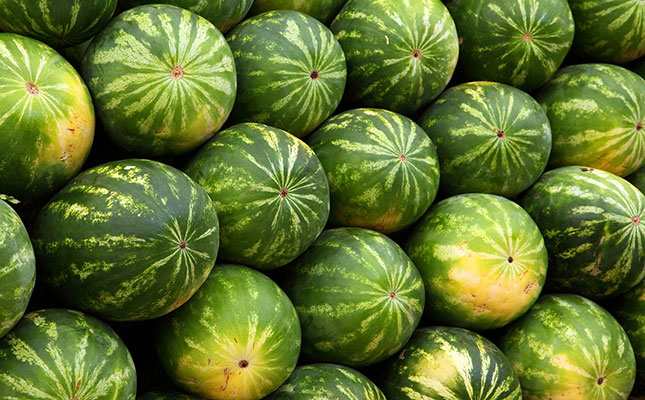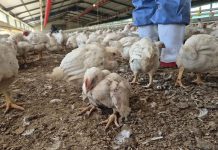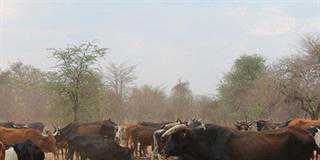
Photo: Pixabay
A sharp drop in market prices have forced several watermelon farmers to plough unharvested fruit back into the lands, or find alternative markets in their local areas.
Last month, stockpiles of watermelon rose to 80 000 and 100 000 at the Johannesburg and Pretoria fresh produce markets respectively, Steve Michaels, market agent for City Deep Watermelon, told Farmer’s Weekly.
READ Know your watermelon varieties
One farmer said that market prices had dipped so low that in some instances the price offered was not enough to cover just the transport cost to get the produce to the market.
“Prices are currently between R10 and R40/watermelon, and last month it was even lower. Currently, the [Gauteng] market offers me R1/kg. It costs me R1 000 to transport a bin of watermelons to Gauteng’s markets, and a bin has a carrying capacity of 500kg,” Willem Helm, a farmer in the Waterpoort area of Limpopo said.
He explained that he would thus make a loss of R500/bin on transport costs alone. “Transport is a massive problem. I’m situated 600km from the [Gauteng] market.”
Helm added that although he was able to sell produce locally, around 40% of his crop would probably rot.
READ Ethanol production rise puts pressure on global sugar supply
Henna du Plessis, chairperson of TAU SA’s Young Farmer Committee, said many farmers decided to rather plough the watermelons back into the lands, due to high transport cost, which meant that it was no longer feasible to harvest the fruit.
Gert Brits, a farm manager near Messina, said some of the watermelons he sent to market last month had still not been sold.
“Currently we’re getting better prices [in our local communities] than we would get at fresh produce markets. If it was not for [contracts with] Pick n Pay and Spar, I don’t know how we would have survived.”
Brits said despite the fact that he had been able to produce watermelons that weigh more than 20kg, his market agent was only able to offer R15/watermelon.
“We cannot send our produce to market at such low prices,” Brits said, adding that the majority of the watermelons were now sold at two local supermarkets, a local holiday resort, and by local hawkers.
“We aren’t planning [to plough the watermelons back] into the ground either, because that will simply serve as bait for pests.”
Michaels explained that what made the situation in Gauteng worse, was the fact that persistent rain had kept hawkers and street vendors away, due to them being unable to sell or store produce when it was raining.
“Our economy is also not doing well. Last year some people still had money, but many people have since lost their jobs. Normally, the price picks up from 15 December when people start doing their final shopping for Christmas. The [busiest] sales period is between 15 and 20 December, but [this year] it looks as though the weather may be against us,” Michaels said, adding that rainfall was forecast for that period.










